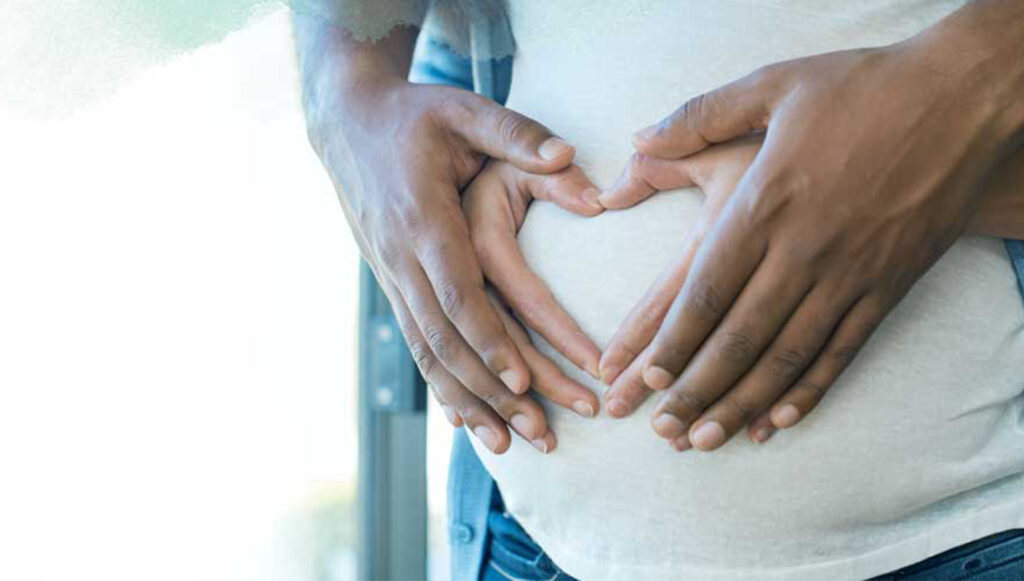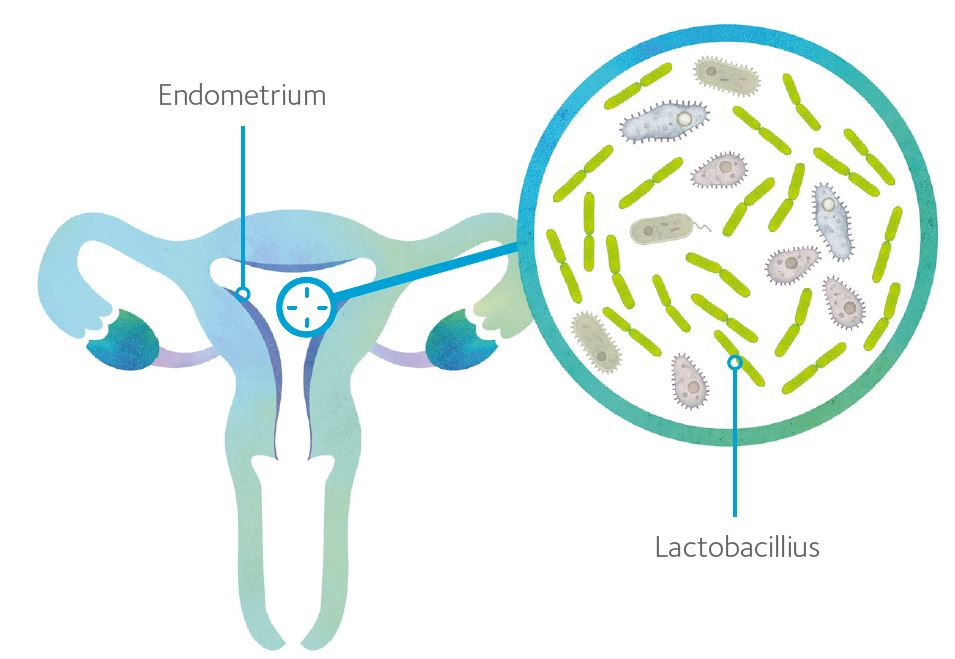Right Environment
Determining the optimal endometrial environment

The right environment is key for successful embryo transfer
Research shows that dysbiosis (an imbalance of microbes) in your endometrium may cause an inflammatory and unfavorable environment that can negatively
impact implantation.1
On the other hand, presence in the endometrium of a certain type of bacteria (Lactobacillus) is associated with positive outcomes, such as an increased embryo implantation rate.
An endometrium with greater than or equal to 90% Lactobacillus has been shown to have higher implantation rates.2,3
Other microbes that are known to be disease-spreading (pathogens) are associated with reduced implantation rates as they can have an adverse impact on implantation of an embryo, or other serious health consequences.2,3

Helps identify:
- Levels of Lactobacillus
- Presence or absence of known reproductive tract pathogens
ERBiomeSM test results
Easy result interpretation
A Lacto-dominant or Non-Lacto-dominant result is given along with detected reproductive tract pathogens known to negatively impact implantation outcomes.

Lacto-dominant (favorable endometrial environment):
Your endometrial sample was found to have a composition of greater than or equal to: 90% Lactobacillus

Non-Lacto-dominant (less favorable):
Your endometrial sample was found to have a composition of less than: 90% Lactobacillus
Your clinician will interpret the results and let you know if they recommend any type of treatment.
The ERBiome test is considered a screening test and should not be used alone to diagnose or treat any condition.
References
1. Toson, Bruno et al. “The Endometrial Microbiome and Its Impact on Human Conception.” International journal of molecular sciences vol. 23,1 485. 1 Jan. 2022, doi:10.3390/ijms230104854. Moreno et al, Evidence that the endometrial microbiota has an effect on implantation success or failure. Am J Obstet Gynecol. 20165. Elnashar, A.M. Impact of endometrial microbiome on fertility. Middle East Fertil Soc J, 2021
2. Moreno et al, Evidence that the endometrial microbiota has an effect on implantation success or failure. Am J Obstet Gynecol. 20
3. Elnashar, A.M. Impact of endometrial microbiome on fertility. Middle East Fertil Soc J, 2021
